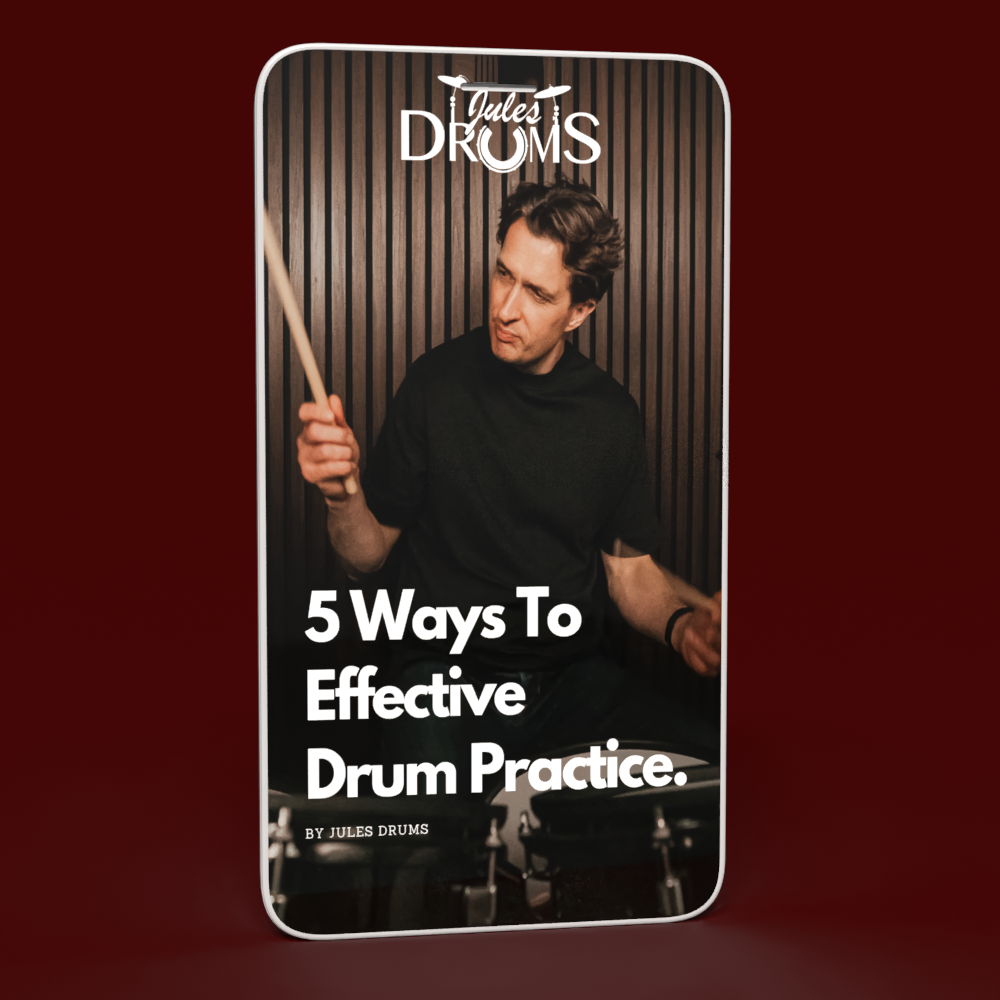Why Do Drummers Feel Stuck?

Before tackling the problem, it’s important to understand why drummers often feel stuck or lose motivation. Here are some common reasons:
- Lack of Visible Progress: When you don’t see immediate results, it’s easy to get discouraged. Drumming skills develop gradually, and some techniques take longer to master than others.
- Overwhelming Practice Material: Trying to learn too many things at once can be confusing and overwhelming.
- Monotonous Practice Routine: Repeating the same exercises every day without variety can make practice dull.
- External Life Stress: Busy schedules, work, school, or personal issues can sap energy and focus.
- Unclear Goals: Without clear, measurable goals, it’s harder to stay motivated because you don’t know what you’re working toward.
Recognising these causes is the first step to overcoming them.
1. Set Clear, Achievable Goals
One of the best ways to keep motivated is to set clear goals that are realistic and achievable. Rather than vague ambitions like “get better at drums,” try to be specific:
- Learn a new rudiment this week.
- Master a particular groove or fill.
- Complete a practice plan focusing on speed or control.
Setting small milestones gives you a sense of progress and achievement. It also helps break down the larger goal of “becoming a great drummer” into manageable chunks.
2. Create a Structured Practice Routine
Having a consistent and structured practice routine can make a huge difference. This doesn’t mean practicing for hours every day but having a clear plan for each session. For example:
- Warm-up with rudiments for 5 minutes.
- Work on one groove for 10 minutes.
- Practice a fill or solo for 10 minutes.
- End with a fun jam or improvisation.
A structured routine prevents aimless practice and ensures that you cover all the important areas systematically. When you know what you’re doing each day, it’s easier to stay motivated. Check out my mini eBook "5 Ways to Effective Drum Practice" for more help with this.
3. Keep Your Practice Sessions Short and Focused
Long, exhausting practice sessions can lead to burnout. Instead, aim for shorter, focused sessions where your attention is sharp and you can track progress.
For many drummers, 20-30 minute sessions are ideal, especially on busy days.
Use a timer if needed, and try to focus on one skill or concept per session. Quality over quantity helps maintain enthusiasm and energy.
4. Vary Your Practice to Keep It Interesting
Doing the same exercises repeatedly can make practice feel like a chore. To keep things fresh:
- Mix technical exercises with musical pieces.
- Alternate between grooves, rudiments, and fills.
- Play along to backing tracks or your favourite songs.
- Try different genres or styles of drumming.
Adding variety not only makes practice more enjoyable but also improves your versatility as a drummer.
5. Record Yourself and Track Progress
Recording your practice sessions is a powerful motivation tool. It allows you to hear your progress over time and identify areas for improvement. When you listen back, you might notice improvements you didn’t realise you’d made.
You can use your phone or a simple audio recorder. Set goals to record yourself weekly or monthly and keep a log of your progress.
6. Find Inspiration from Others
Sometimes, motivation wanes because you feel isolated. Watching other drummers—whether in person, online, or through videos—can reignite your passion. Here are some ideas:
- Watch drumming tutorials or performances on YouTube.
- Follow drummers on social media.
- Join online drumming communities or forums.
- Attend local live shows or jam sessions.
Seeing others’ skills and enthusiasm reminds you why you love drumming and what’s possible with dedication.
7. Practice Mindfully and Stay Present
It’s easy to get frustrated when you focus only on mistakes or how much you still have to learn. Instead, try to practice mindfully:
- Concentrate on the feel of the drums and the rhythm.
- Celebrate small wins, like a fill you nailed or a groove you held steady.
- Be patient with yourself and accept that learning takes time.
Mindful practice increases satisfaction and keeps negative thoughts at bay.
8. Get Professional Guidance
Sometimes feeling stuck means you need a fresh perspective. Working with a teacher or coach can:
- Help you identify and correct bad habits.
- Provide personalised exercises to overcome specific challenges.
- Offer encouragement and accountability.
If you’re serious about progressing, consider investing in a course or regular lessons. Structured teaching accelerates improvement and keeps you motivated.
9. Use Tools That Motivate You
There are plenty of apps and gadgets designed to make drumming practice more engaging:
- Metronome apps with fun features.
- Drum play-along apps.
- Practice trackers or journals.
- Drum pad controllers for experimenting.
Using technology can add a fun, interactive element that keeps you coming back.
10. Celebrate Your Achievements
Lastly, never underestimate the power of celebration. Whether you’ve mastered a new fill, passed an exam, or simply kept to your practice schedule for a week, reward yourself. Celebrating success reinforces positive habits and motivation.
Final Thoughts
Getting stuck is a normal part of the drumming journey. The key is not to give up but to adjust your approach. By setting clear goals, creating a structured yet varied routine, practising mindfully, and seeking support when needed, you can overcome plateaus and keep your passion alive.
If you’re ready to take your drumming to the next level and want a proven, step-by-step plan to accelerate your skills, consider joining a focused course designed to help you break through barriers and achieve your goals faster.
Above all, remember to enjoy your drumming. Remember the reasons that you started out on your drumming jouney in the first place. To learn something new, to relax, to join a band, to meet new people, to learn a new skill, to challenge yourself, or just for fun, it doesn't matter.
For most people I teach, it's just for the enjoyment of playing, and it's important to remember that sometimes too. Don't get bogged down by the frustrations of percieved slow progress, comparing yourself to others etc etc, just grab a pair of sticks, sit down at that pad or kit, switch off your phone, and just revel in that feeling us drummers get when as the sticks hit that surface.
Pure joy, pure fun, pure excitment. Remember thr reasons why we do it, always.
Enjoy!
Jules





